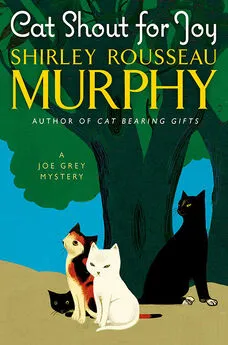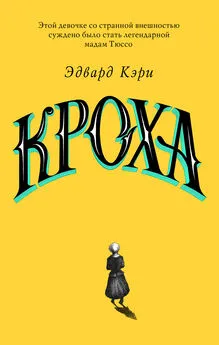Кроха - Dedication
- Название:Dedication
- Автор:
- Жанр:
- Издательство:неизвестно
- Год:неизвестен
- ISBN:нет данных
- Рейтинг:
- Избранное:Добавить в избранное
-
Отзывы:
-
Ваша оценка:
Кроха - Dedication краткое содержание
Dedication - читать онлайн бесплатно полную версию (весь текст целиком)
Интервал:
Закладка:
The couple had finished up their complaint forms, signed them, and were handing them to Captain Harper. Something about the look they exchanged as they headed for the door held Joe.
They left the station quickly, Tekla determinedly pushing Sam’s wheelchair as if wanting to be swiftly away from MPPD and Max Harper. As Max turned to the desk with the forms, Joe leaped up beside him, rubbing chummily against his arm.
Max looked down, laughing at him. Joe was happy to lighten the chief’s mood, and as Max stroked him, he got a look at the forms with the Bleaks’ rental address.
Molena Point did not have house numbers. Sam identified the street and cross streets in the usual way, then the name of the house, Daffodil Walk, with an added note, “the guesthouse in the back.” Joe knew the house, a two-story frame painted butter yellow. Joe had never seen a daffodil in the yard. Giving Max a nudge and a purr, Joe dropped down from the counter, galloped to the glass door, and yowled stridently for the chief to let him out.
“Spoiled, worthless tomcat,” Max said, sounding too much like Clyde.
Smiling, Joe slipped through the open door, skinned up the oak tree as Max turned back inside, and scorched away over the rooftops. He wanted to arrive at Tekla and Sam’s rental before they did. He wanted to slip into the apartment behind them and hastily conceal himself.
23
Dulcie was already gone from in front of the PD when Joe Grey went racing out, headed for the Bleaks’ rental. Watching the busy lobby, she had drawn back when Evijean came out and headed along the street. A few doors down stood Effie Hoop in her red sweatshirt, smiling, waiting for Evijean. What was this? Did these two know each other? Curious, Dulcie followed, slipping along in the shadow of the building. She watched the two women hug in greeting. They glanced toward the police station, then quickly entered the new little tearoom that stood between two larger shops.
The leaded front windows were low to the ground, looking out on a row of ceramic pots planted with red geraniums. Dulcie stood half hidden among these, looking in. The tiny restaurant was charming, was most attractive to tourists. It was handy to the department, too, for a quick snack. But a cop wouldn’t be caught there with its fluffy flowered curtains, its décor as overdone as a dollhouse. It was perfect, however, for lunch for the two ladies. Dulcie wondered where Effie had left her husband, Howard. This was sure not his kind of place. And how did they know each other, Effie, with her strange remarks about San Francisco, and sour, bad-tempered Evijean? They looked as easy together as old, dear friends as they were led, laughing and talking, to a frilly corner table, its ruffled cloth printed with a tangle of daisies.
When Kit appeared suddenly pushing in beside her, Dulcie nuzzled her in greeting; both cats were so focused on Evijean and Effie that when another two ladies entered they slid inside at once and under a padded window seat.
The tearoom was small, its decorative windows framed by ruffled curtains. Though the day was warm, a tiny stone fireplace sheltered an equally tiny but welcoming flame of miniature logs. The women, only glancing at their menus, were already deep into a discussion. Dulcie crouched, listening. Hadn’t Effie Hoop or Howard mentioned a sister, that morning in the café patio over breakfast? But Effie was saying, “It doesn’t make sense. Seven attacks, three of them jurors. Those jurors dead, plus the two killed in the city. But what about the others, those here in the village that had no connection to the trial?”
She went quiet as the waitress came to take their order, setting down a pot of hot water and a selection of teas. Both women ordered a small salad and scones.
“Those other attacks,” Evijean said, “may be a diversion. The department thinks that’s what it was.”
“I suppose that’s possible. What did you find out this morning?”
“They have more photographs. They took shots this morning, too. And they have some kind of new evidence, Detective Garza came in with a box full of evidence bags. I didn’t get a look, he took them on back to his office. As for Herbert Gardner,” Evijean said, “as far as anyone knows he didn’t have any connections. No family anywhere.
“But someone’s out to get the jury that convicted him.”
“Maybe some slimy friend of his,” Effie said, “that the investigators didn’t find.”
“Whatever,” Evijean said, “Marilain’s dead, that can’t be undone. It’s not surprising,” she added. “The girl was no better than a streetwalker.”
“No matter what she was, she was our niece! Our own brother’s child. It’s not his fault she went bad.”
Dulcie and Kit glanced at each other. The two women, despite their difference in size and bulk, did look alike, their pale coloring, their long noses. Effie’s brown hair had started to go gray. Evijean was some years younger, but her hair was so faded that, under the strange blond coloring, it must be graying, too.
Evijean stirred sugar into her tea. “Well, she had a poor start, fell into bad ways herself.”
“Don’t you care that she’s dead?”
Evijean shrugged. “Gardner will die for it. However this turns out, that’s the consolation.”
Effie looked at her sister, her round face disapproving. “You dated him once, didn’t you? Before Marilain met him, when you lived in the city?”
“Not dated, he was a generation too young,” Evijean said sourly. “Marilain was only seventeen, a child. I just had dinner with Gardner a couple of times, after work. Then when he met Marilain, of course he had no time for anyone else, even a friend. I think he hung out with me to meet her. Ithought he was a friend. I had no idea what he was, what he might do,” she said bitterly.
“Well,” she said, “that was a long time ago, before I worked for the sheriff’s department and then moved down here. I might never have gotten this temp job if I hadn’t been cleared, back then, for the sheriff’s office.
“But now . . . it’s the jurors,” she said, “they had no need to die. How did the killer get their names? All that is sealed. But you were there in the courtroom, in the gallery. Did you notice anything strange, or anyone you knew? Did you know any of the victims?”
“The only victim I know is Betty Porter, and she wasn’t on the jury. I know her from earlier visits, from talking with her in the drugstore.
“Well, in the courtroom, I did see that other woman, Bonnie, who was nearly mugged right here in front of the station. She was on the jury—but it was her husband who was killed. I recognized her from the San Francisco paper. She was the juror, and he died for it.” She paused as the waitress brought their order.
Evijean said, “So strange that the San Francisco investigators, the county attorney, knew so little about Gardner’s background.”
“They found enough to prosecute him,” Effie said. “They didn’t need to know his life story. That defense attorney,” she said with a smile, “his heart wasn’t in saving Gardner.”
“You have to give him that,” Evijean said. “No one wanted Gardner to go free.”
“Except the stalker,” Effie said. “Didn’t Gardner ever say anything to you about his background, his family?”
“Nothing. He was so closemouthed. That in itself should have alerted me. Marilain never said anything about his past, either, and by that time, I didn’t care. And then I moved down here and didn’t see her anymore. She might have been our niece, but I didn’t like her much. She wasn’t much good,” Evijean said.
Effie poured more tea for herself. “Well, someone was close to him, cared about him. Someone is killing innocent jurors because they did their job.” She set down the teapot. “Marilain did come to see us a time or two when we lived on Grant Street—wanting to borrow money. She said Gardner had no family, that his mother would have nothing to do with him, that he hadn’t seen her in years, that she’d moved to the East Coast somewhere—maybe as far away from him as she could get.”
“Well, it couldn’t have been her,” Evijean said. “If his mother hated him for how he’d turned out, maybe knew about earlier crimes, why would she come back here and go after innocent jurors for convicting him? She should celebrate.”
Effie shrugged. “Some women are like that. Hate their kids when they turn bad, but then they go all defensive when the kid gets caught and has to pay for his sins.” She settled heavily back in her chair, buttering a scone. “And the police here, they don’t have any background on Gardner? Theydon’t know who might be connected to him?”
“Not that I can find,” Evijean said. “But now, this morning, they’re working on new evidence, something’s going on in there.” She sipped her tea, looked up at Effie; she went quiet as the waitress brought their check.
When Dulcie looked at Kit, Kit looked sly and smug. A look of triumph, as if she had her paws in the cream. “What?” Dulcie whispered. But the women had paid the bill and risen. With no more useful information forthcoming, and with not much traffic in and out of the tearoom, the two cats hurried out the door behind them.
Evijean went on into the station. Dulcie and Kit waited in the bushes until they could duck through, unseen. “What?” Dulcie said again. “What did you do?”
“The shoes,” Kit whispered. “I found thrown-away shoes. Dallas has them.” Quickly Kit told her about Sam’s “accident,” about the Bleaks’ charges against Billy. “And Joe,” Kit said, “Joe was mad enough to . . . I didn’t know what he’d do.” She peered in through the glass door. “Looks like the Bleaks are gone. They . . .” She hushed as Officer McFarland pulled up in his squad car. As he got out, they slipped up to the door behind him. Seeing them, McFarland grinned, his boyish brown hair mussed under his cap, and he held the door for them. They trotted through, glanced up at him with a flick of their tails, and hurried past the counter out of Evijean’s sight, quickly down the hall, to the safety of Max Harper’s door.
His office was empty, the door cracked open but no one there. They could hear voices from Juana Davis’s office. They crossed the hall and slid inside, halting inches behind Detective Davis’s black shoes and the chief’s western boots where they stood at a long, folding table. Kit slid in first. She knew at once by the smell that the shoes were there, the shoes she’d found in the Dumpster; the smell of pine pitch was so strong that she had to hide a grin.
24
Juana Davis’s usually neat office looked like a jumble sale. A long table stood in the middle of the room, her furniture pushed against the wall, the credenza, bookcase, and desk shoved together. Davis, Max Harper, and Billy stood at the table absorbed as Dulcie and Kit slipped into the room. Silently they hopped up onto the desk and to the top of the bookcase where they could look down.
Besides the shoes there were photos again: crime scene photos crowded the table. A set of pictures neatly arranged by each shoe. Now they had a match, the corresponding color shots marked with time, date, name of the victim. Kit looked smugly at Dulcie. She was so proud she could hardly help lashing her tail and grinning.
But Dulcie was looking for Joe Grey. Why wasn’t he in here scanning the evidence? She couldn’t even catch his scent.
She thought about the Bleaks’ scam, how they’d tried to incriminate Billy, how angry Joe had been—Kit said she didn’t know what he’d do. Oh, she thought, he hasn’t followed them, he hasn’t followed the Bleaks home?
Читать дальшеИнтервал:
Закладка:




![Эдвард Кэри - Кроха [litres с оптимизированными иллюстрациями]](/books/1073665/edvard-keri-kroha-litres-s-optimizirovannymi-illyu.webp)


